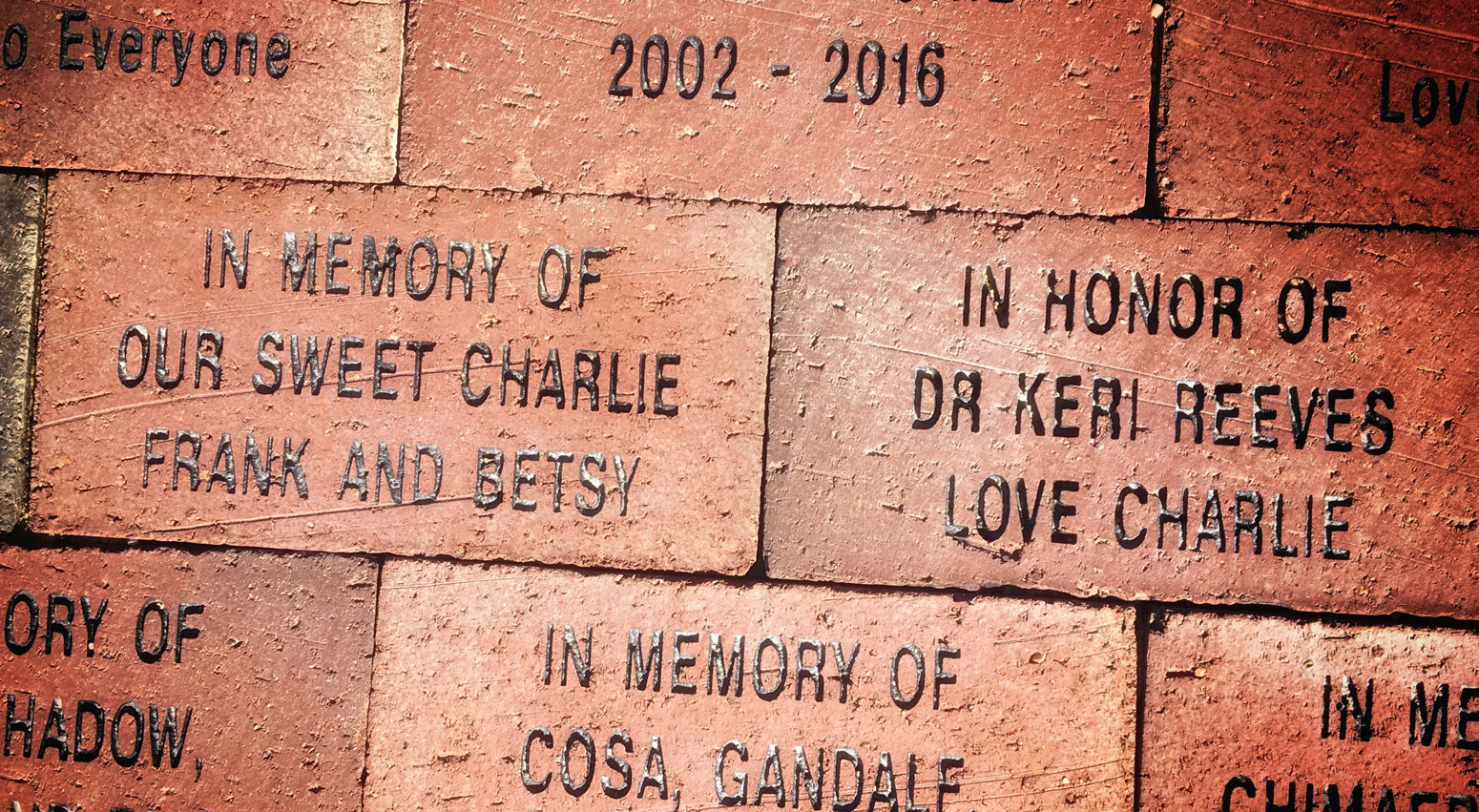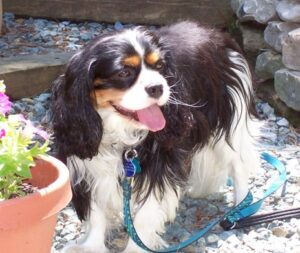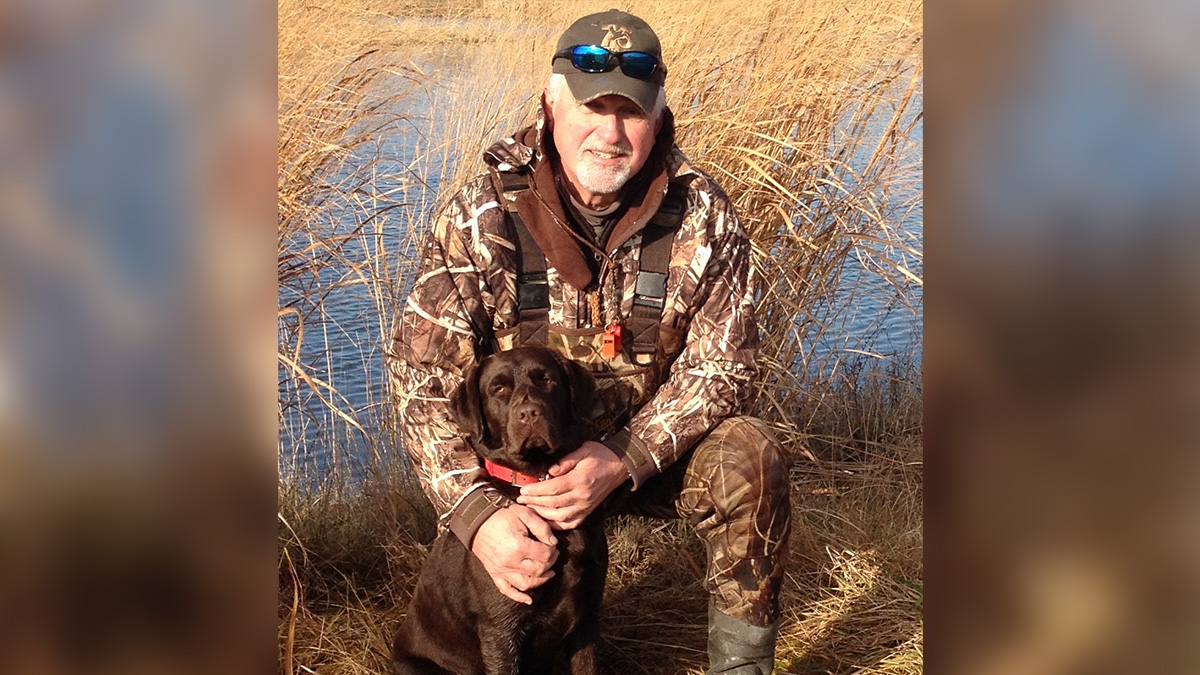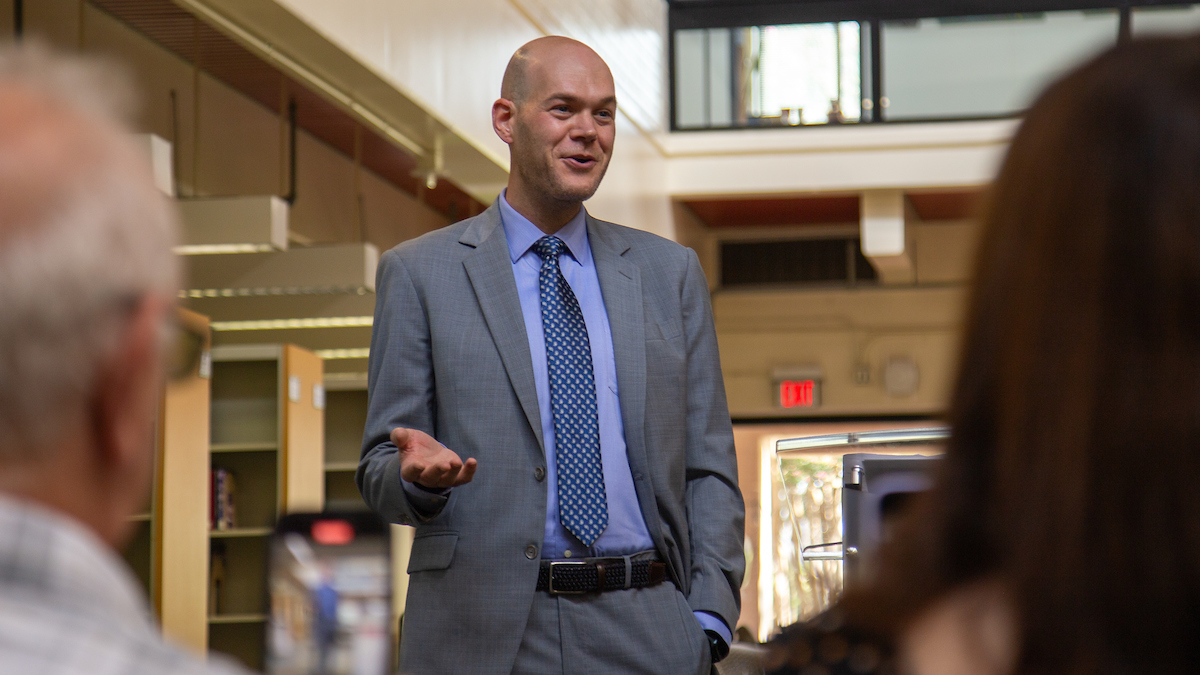One for Charlie

Affectionate, graceful and gentle. That’s how the web site of the American Kennel Club describes the Cavalier King Charles Spaniel breed. So it’s not surprising to learn that Frank and Betsy Skidmore of Durham, were extremely fond of their dog, Charlie.
Charlie loved when he and Frank, a retired IBM executive, would go to the Piney Wood Park. in Durham. He would also accompany Betsy on her daily walk, pulling the whole way.
In time, however, Charlie began to show signs of a problem that is unfortunately common in Cavalier King Charles Spaniels. Mitral valve disease, a degenerative heart condition. The first indication of any problem came when Teresa DeFrancesco, professor of cardiology and ICU critical care at the NC State College of Veterinary Medicine, (CVM) diagnosed Charlie with a heart murmur during a Labor Day event in 2011 where local veterinarian specialists volunteered services to the community. As his symptoms became more apparent, his local veterinarian, Keri Reeves, a graduate of the CVM, coordinated his care with DeFrancesco and the cardiology team.

Fortunately, Charlie’s condition could be managed with the proper regimen, and he became a regular and popular visitor to the NC State Veterinary Hospital, as well as with his friends at the Falconbridge Animal Hospital in Durham. However, mitral valve disease is progressive, and by the autumn of 2015, “Charlie was starting to slow down,” Frank says. Charlie’s heart valve was weakening and the Skidmores were told that it would be necessary to ease up on exercise. Trips to the park were no longer an option.
In the spring of 2016, Charlie’s cough grew worse and he was brought to the hospital’s emergency room, twice.
“The care he received was terrific,” Frank says. “They put him in an oxygen cage and that helped a lot.” Adjustments to his medications were tried, but as Frank reports, sometimes that can be successful, and sometimes not. Ultimately, he was seeing Reeves every 10 days and was retaining fluid, a sign of heart failure.
[pullquote color=”orange”]“When we needed them at 2 a.m., someone was always there. And everyone was wonderful — they all knew Charlie. Petra [Vasilik] his vet tech would always say hello to Charlie if she saw him, even if she wasn’t working on his case that day.” [/pullquote]
Finally, in August 2016, Charlie went into serious decline, resulting in a 3 a.m. return visit to the NC State emergency service. Not long afterwards, cardiology resident Brent Aona asked the Skidmores if they were ready to make a difficult decision that would be best for Charlie, and they were.
While sad, the Skidmores were also grateful for the expert care and support they and Charlie had received, care that had given them more quality time together. “We felt very lucky to be this close to such a world class facility,” Frank says. “When we needed them at 2 a.m., someone was always there. And everyone was wonderful — they all knew Charlie. Petra [Vasilik] his vet tech would always say hello to Charlie if she saw him, even if she wasn’t working on his case that day.”
Having learned about the Walk of Honor on the CVM campus, the Skidmores placed two bricks side by side in the commemorative pathway. One reads, “In memory of our sweet Charlie, Frank and Betsy,” and the other says, “In honor of Dr. Keri Reeves, Love, Charlie.”
In addition, the Skidmores also made an additional donation to the Cavalier King Charles Spaniel Health Research Fund in gratitude for the care they had received from the cardiology team.
[highlight color=”gray”][fa_icon name=”fa-gift” size=”1x”] How to Order: Adding a memorial brick to the Walk of Honor involves making a tax-deductible donation to the North Carolina Veterinary Foundation — $200 for a brick or $500 for an 18-inch stone paver — that will be used to support the teaching, healing and community service activities of the CVM. If you are interested in learning more about how to honor a friend, whether animal or human, please visit Walk of Honor page. [/highlight]
~Steve Volstad/NC State Veterinary Medicine
- Categories:


